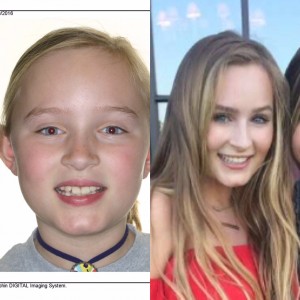By our Smarty friends at Hull & Coleman Orthodontics.
Unfortunately…yes. As orthodontists, one of the most common things we get asked by young kids (and adults) who are starting orthodontic treatment is, “How long will I need to wear a retainer after my braces come off?” It’s a great question—after all, you’re investing several thousand dollars and a couple of years getting your teeth beautifully straight and your bite correct, so naturally you want to protect that investment. But people are often surprised by our answer.
Orthodontics has progressed tremendously in comfort, ease, and efficiency over the last several decades, and our knowledge of how to keep our results has also increased dramatically. It has long been the standard of care to give patients retainers after their orthodontic treatment is completed in order to try to hold the teeth in their corrected position. Retainers come in many forms (more on that later), but regardless of type or design they’re all trying to do the same thing—keep your teeth straight. Years ago, most orthodontists would tell their patients to wear their retainers for a couple of years post-treatment and then stop. Unfortunately, just about everyone who stopped wearing their retainers started to see a relapse of their dental crowding or spacing as their teeth slowly shifted back toward their original pre-treatment position.
As orthodontic specialists, we don’t fully understand what causes relapse after orthodontic treatment. We do know that it appears to be a multi-factorial process, and although we do know some of what causes teeth to move over time, we don’t know all the factors involved. What we DO know now based on more modern orthodontic research is that, whether a person is treated orthodontically or not, teeth tend to move over time. And all current orthodontic research suggests that, if you don’t want your teeth to shift over time, you have to wear retainers for life. That doesn’t mean all day, every day forever, but it does mean that you should never stop wearing your retainers completely. In our practice, when a patient gets their braces off, we advise them to wear their retainers full-time for three months before transitioning to nighttime wear only. After usually 2-4 years of nighttime wear, we tell patients that they can slowly cut back on their retainer wear until they are wearing them about 3-4 nights each week, but we encourage them not to drop below that amount of wear due to the risk of relapse.
Notice that I said “whether a person is treated orthodontically or not.” That means that, even if you’ve never had orthodontic treatment and are happy with where your teeth are now, if you don’t hold them in their current position they’ll likely going to shift. We frequently see patients that have great teeth and don’t need braces or Invisalign, and to those patients we offer the opportunity to get retainers to hold their teeth in their current great alignment so that they’ll never need treatment in the future.
Retainers come in many forms—glued in place vs. removable, metal vs. plastic…but regardless of design their goal of keeping your teeth straight is always the same. When the time comes for you or your child to enter orthodontic treatment, take a moment to ask us what your retainer options are and the pros/cons of those options. There is no “perfect” retainer, but some are better than others for specific reasons, and retainer type should be customized for your particular teeth and bite.
Lastly, don’t let retainer wear for life stress you out! The exercise analogy works well—you don’t expect to work out, get a fit body, and then stop working out for life while maintaining your exercise results, do you? Teeth are exactly the same. You’ll put a lot of time and effort into getting the smile you’ve always wanted. So put in that little bit of effort to slip on your tooth pajamas as you head to bed to make sure you get to enjoy that investment for life. ☺
![]()
You can find our Smarty Favorite Hull & Coleman Orthodontics at:
Read their blog on What to expect during your first orthodontist visit.
Read Jen Plym’s tips for when your child first gets braces.
Arboretum Office
7800 Providence Road, Suite 201
Charlotte, NC 28226
704-334-7203
Wesley Chapel Office
5941 Weddington Road
Suite 103
Wesley Chapel, NC 28104
704-684-8080



